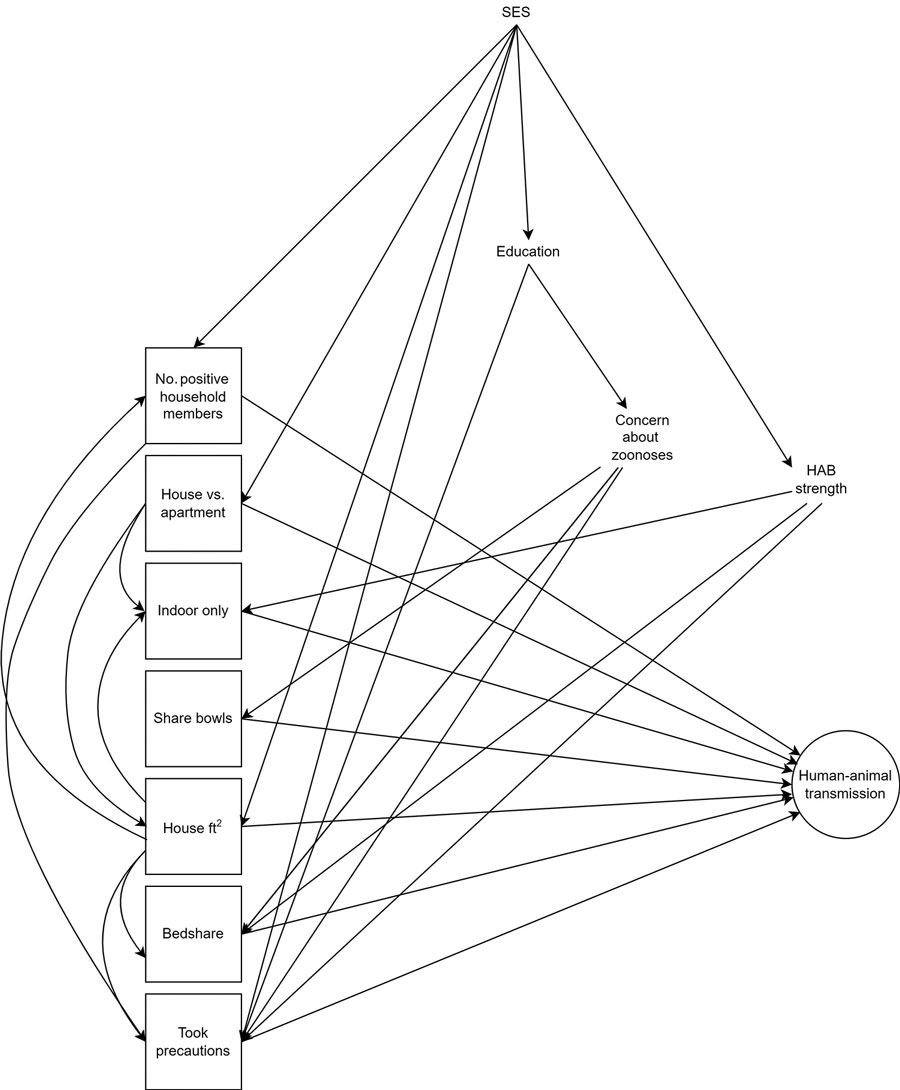Volume 28, Number 12—December 2022
Research
Household Transmission of SARS-CoV-2 from Humans to Pets, Washington and Idaho, USA
Figure 1

Figure 1. Directed acyclic graph for human‒animal transmission of SARS-CoV-2, Washington and Idaho, USA. Squares indicate exposures of interest and circles indicate outcomes (approximated by serostatus, PCR result, and illness in separate models). Measured and unmeasured confounders are included. SARS-CoV-2‒positive household member(s) took precautions to prevent transmission to pet. Indoor-only indicates the animal does not go outdoors; bedshare indicates the animal shares a bed with >1 household members. HAB, human‒animal bond; SES, socioeconomic status.
1Current affiliation: Washington State Department of Health, Shoreline, Washington, USA.
Page created: October 06, 2022
Page updated: November 21, 2022
Page reviewed: November 21, 2022
The conclusions, findings, and opinions expressed by authors contributing to this journal do not necessarily reflect the official position of the U.S. Department of Health and Human Services, the Public Health Service, the Centers for Disease Control and Prevention, or the authors' affiliated institutions. Use of trade names is for identification only and does not imply endorsement by any of the groups named above.